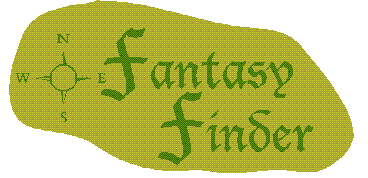
|

|
Ursula K. Le Guin
This is the fourth book in the Earthsea Quartet.
Beware! The review might include spoilers if you
haven't read the previous books.
Tehanu (Book 4 of the Earthsea Quartet)
Victor Gollancz 1990
While Ged has been away, being archmage on faraway Roke, Tenar has lived an ordinary life on Gont. Married a farmer, raised a son and a daughter and become a widow. Her children are both gone now, her daughter married with children of her own, her son a sailor - he could be a pirate for all she knows. That's when she takes care of a young girl whose parents have beaten her and burned her, destroying half of her face. Most villagers think killing the babe would be merciful, but Tenar thinks otherwise. This is the story about the strange child, Therru, but also the story about a middle-aged woman who finally understands a little about men and women and magic and life, and about an ex-archmage who learns to live without the power he always had before.
When "Tehanu" was published, it woke strong emotions. The Earthsea trilogy is one of the most read and most loved fantasy series of all time, and many thought she was soiling the earlier books with her late addition to the series. Whatever one's reaction to "Tehanu" is, it must be said that it's quite different from the original trilogy. The first three books are all about growing up: Ged in the first one, Tenar in the second and Lebannen in the third. But the difference is larger than that.
There is a difference in the story-telling. In the original trilogy the writing is it's effective, yet poetic - so compact it almost hurts a reader accustomed to wordiness of modern fantasy. Every word is important. "Tehanu" is quite different. The tempo is slower, there is in fact not very much happening at all. There is more talk, more unnecessary words - although the language still is extremely compact compared to that in for instance the works of Robert Jordan or Terry Goodkind. I'm quite surprised that the original trilogy ever was considered juvenile books, because the language is actually quite rich in all four books. There should be no "easy reading" label put on them.
There is also a difference in ideology. It might be argued that the original trilogy is ideologically influenced by the analytical psychology of C. G. Jung as well as of daoism and other Eastern systems of thinking, but in "Tehanu" the feministic political message is delivered quite openly. There is small wonder Tenar's reflections turn that way, considering how patriarchal the Gontish society is, but it's still somewhat annoying when the author tries to teach me something instead of telling a good story. Especially when the story isn't nearly as good as the three previous.
Does this mean "Tehanu" is a bad book? No, but it's not nearly as good as the original trilogy. But it's still a must if you've finished "The Farthest Shore" and want to know what happened afterwards.
Karl Henriksson
| Library Binding |  |
| Paperback |  |
Books by the same author:
A Wizard of Earthsea
The Tombs of Atuan
The Farthest Shore
LeGuin, Ursula K (fan page)
© Henriksson & Henriksson 1997.